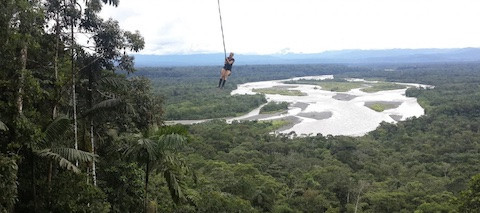
GCED Basic Search Form
Quick Search
You are here
News

A global citizen and lifelong learner with a deep-rooted passion for the environment and sustainable development, Devonne Goad is an education consultant at UNESCO. She has been tasked with project-based policy analysis, assessments and evaluations across the region of South-East Europe and the Mediterranean. She wrote the UNESCO publications; “Mapping the Mainstreaming of Education for Sustainable Development Across SDG4.7: A Comparative Analysis of the Mainstreaming of ESD in Cyprus, Greece, Malta and Turkey”, and “Scoping the Implementation of Education for Sustainable Development in South-East Europe, Including the Impact of COVID-19” (forthcoming). She contributed to publication “The Intersection of gender equality and quality education in four Mediterranean countries: a regional situation analysis of the nexus between SDG4 and SDG5 in Cyprus, Greece, Malta, and Turkey”. Prior to obtaining her Master’s degree in Environmental Resource Management, she worked in community education projects in South America focusing on climate change and ecology. She was also an English as Second Language (ESL) teacher.
Have you always been interested in education, particularly environmental education?
To be honest, my passion for the environment came first. I grew up in rural Canada and spent a lot of time outside – hiking, snowboarding, kayaking, swimming and so on. Some of my earliest memories are hiking through the forest with my father. As an undergraduate, I studied sustainability, conservation, and biodiversity and quickly became very passionate about these issues. However, I soon recognised a discrepancy between my studies and those of my peers – business, economics, finance, to name a few. The same discrepancy became apparent during a summer job during university working with children.
I felt that the ideals and principles that underlie sustainability needed to be broadly integrated for different ages and different sectors. Thus, my interest in environmental education arose as a solution to these global challenges studied in school, as in each new professional position yielded an opportunity to support the development of contextually specific behaviours and attitudes that can help shape a better future.
What has been your experience working as a woman? What would you tell young women starting out in this field? How has COVID-19 affected your work and working conditions? How do you manage working remotely from abroad?
Working in environmental conservation and education, I have always felt included in my sphere of work. However, this is not always the case for everyone, as women and minorities have been – and continue to be – excluded from environmental policy and conservation decisions, as well as from the associated formal or non-formal education initiatives related to these issues.
Centring the voices of underrepresented women in education for sustainable development can help empower and enable critical reflection and action towards a more just, prosperous, and sustainable future for all.
Women offer a unique set of knowledge, experiences, capacities, and priorities. Any young woman interested in starting a career in environmental education should recognise that their unique perspectives can make a significant difference in supporting solutions to the complex demands and challenges of the 21st century.
I consider myself very lucky to have been able to work remotely during the first year of the pandemic. For the most part, I had been living in a relatively rural area with access to green spaces. The ability to walk, explore and wander has been an important aspect in keeping me on track; helping me maintain focus during the week.
Tell us about your publishing with UNESCO, and how important is it to you?
My first publication with UNESCO is one achievement that I am most proud of thus far in my career. Not only does it represent the visible end product of my training in Education for Sustainable Development with the UNESCO Regional Bureau for Science and Culture in Europe, but I feel it also highlights some of my strongest skills – research, analysis and written communication.
Most importantly, however, this publication offered me the opportunity to get acquainted with some of the leading experts in the field, many of whom are women in leadership positions and whose actions, ambitions and dedication truly inspires me every day.
What is the biggest problem that you see nowadays in environmental education? How do you think this can be addressed?
The COVID-19 pandemic is not the first crisis to become victim of society’s repudiation of science and the creation of “facts” that serve alarming and ominous purposes; the prosecution of climate change, for example, through misinformation online has grievously contributed to hindering progressive pro-environmental policies. I would consider Disinformation, Misinformation and Malinformation to be some of the biggest challenges facing environmental education today.
However, given UNESCO’s broad mandate in education – which encompasses aspects of nonformal and informal education, as well as formal education and training, and their expertise in digital literacy, there also lies significant opportunity to support solutions to these burgeoning challenges. Education can and does help to actively tackle “the infodemic” or the “disinfodemic” through the development of digital competences, critical thinking skills, and greater understanding of digital rights, all of which is needed to counteract the divisive and catalytic impacts of disinformation.
Links
- Mapping the Mainstreaming of Education for Sustainable Development Across SDG4.7: A Comparative Analysis of the Mainstreaming of ESD in Cyprus, Greece, Malta and Turkey (2020)
- The Intersection of gender equality and quality education in four Mediterranean countries: a regional situation analysis of the nexus between SDG4 and SDG5 in Cyprus, Greece, Malta, and Turkey (2019)
URL:
https://en.unesco.org/news/confronting-gender-gap-environmental-education
